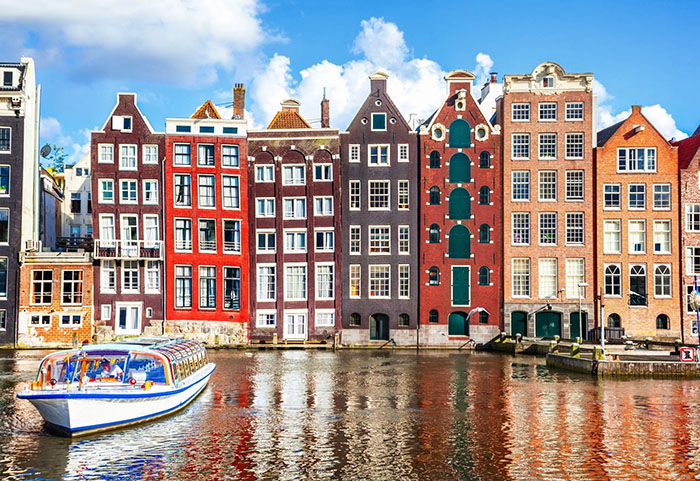According to international standards, the Netherlands, commonly known as Holland, is a safe and happy country. The lively cities of Holland are easy to reach by bike or public transportation, with inexpensive travel options for students. The Dutch are well-known around the world for their open-minded, international, and inventive outlooks, and more than 95% of Dutch people speak English.
Are you thinking about studying in the Netherlands but aren’t sure what to expect?
Then have a look at our list of things you should know before you travel!
1. Language:

The official language of the Netherlands is Dutch, however, English is spoken by more than 71% of the population. However, learning some basic Dutch is still a smart idea, especially if you intend to live and work in the country after finishing your education. Check to see whether your university provides Dutch language classes. To begin learning, download Duo lingo.
There is no language barrier, which makes life easier for visitors from different countries.
2. Visa and residence permit:

Check and adhere to the conditions for obtaining your student visa. To avoid delays in your trip plans, it is critical to begin the application procedure as soon as possible. After graduating from high school, you must apply for the appropriate residency permit. This is the orientation for your residence permit, which allows you to stay for a year. It also allows you to enter the labour market.
3. Cost of living:

Living in the Netherlands may be expensive, particularly in cities like Amsterdam and Rotterdam. Budgeting should be prioritized, and students should look for financial aid and scholarships. In general, an international student’s monthly living expenses in the Netherlands will range between €800 and €1200.
4. Housing:

Finding housing can be difficult, particularly in popular student locations. Begin your search early and don’t be scared to look into alternatives such as student housing or shared apartments. If you wish to live at school, you must find housing as soon as possible. A typical room will cost between €300 and €600, but keep in mind that small towns are often less expensive and that the type of lodging also influences the price.
5. Cultural differences:

It is critical to recognize and appreciate cultural differences. Dutch people, for example, respect directness and timeliness. Before you go, spend some time learning about Dutch culture. It is also worth noting that riding has been ingrained in Dutch culture. You should learn it because the country has a well-designed infrastructure for safe and comfortable riding.
6. No Cash Policy:

Unlike people in other countries, Dutch people prefer using cards to pay. In fact, the Netherlands is one of the countries in Europe leading in the adoption of a cashless environment. However, some stores might accept it while others won’t accept cash, so it is better that you open a bank account upon your arrival to the Netherlands.
7. Health insurance:

All students in the Netherlands, whether EU or non-EU, are required to obtain health insurance. Make sure to do your research and obtain health insurance before or as soon as you arrive in the Netherlands. You are eligible to apply for a health insurance allowance.
Need more guidance on how to study in the Netherlands in 2023?
Then send us a DM and let us help you get there!


Add a Comment